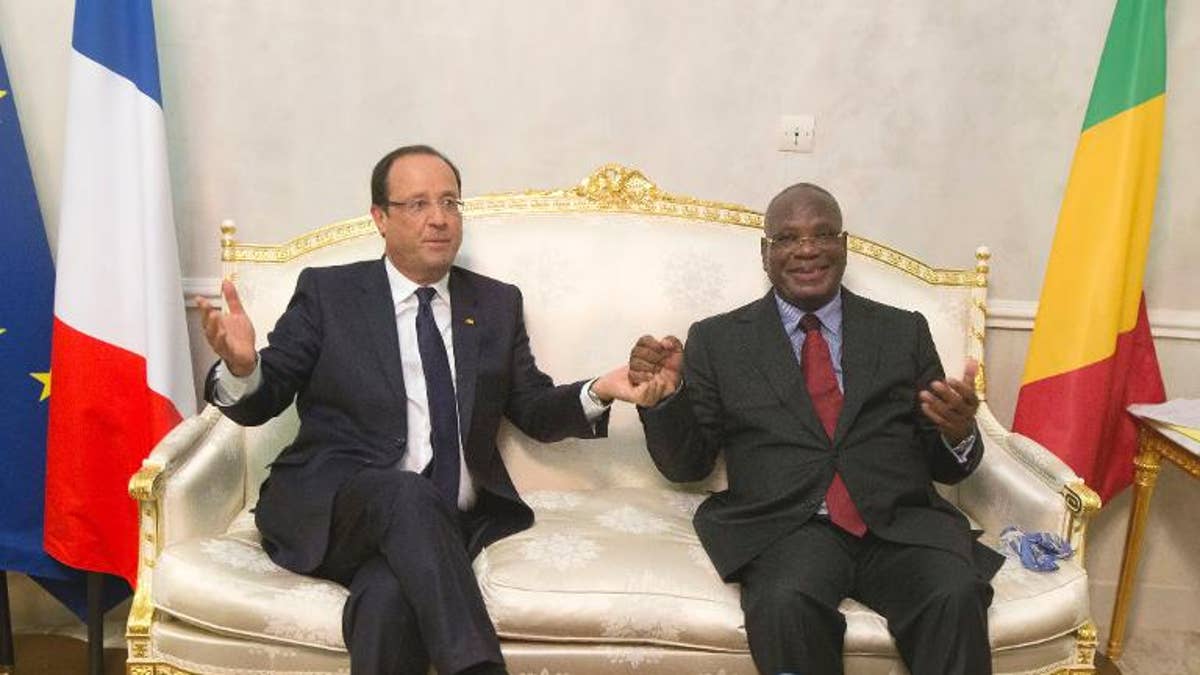
France's President Francois Hollande (L) and Mali's new president Ibrahim Boubacar Keita pose for photographers at Bamako airport on September 19, 2013 (Pool/AFP/File)
Bamako (AFP) – Mali President Ibrahim Boubacar Keita will on Tuesday cut short a visit to France amid renewed fighting between insurgents and the military in the African nation, a source in his entourage said.
Keita will meet French President Francois Hollande on Tuesday morning as scheduled but will then return home, shortening his trip by two days, the source said.
"The situation demands his presence and if it wasn't for the meeting (with Hollande) he would already have returned," he added.
Insurgents launched an attack on the Malian army in the rebel bastion of Kidal on Monday, in fresh violence since the breakdown of peace talks.
The National Movement for the Liberation of Azawad (MNLA), which is fighting for autonomy in northern Mali, ambushed soldiers at a bank, the scene of a fierce firefight on Sunday night, a senior Malian army officer told AFP.
Keita met French Foreign Minister Laurent Fabius on Monday. Before arriving in France he attended a meeting of the UN General Assembly in New York.
The security situation in Mali has worsened in his absence.
Four suicide bombers blew up their car at a military barracks in the desert city of Timbuktu on Saturday, killing two civilians, an attack claimed by the north African group Al-Qaeda in the Islamic Maghreb.
On Monday, dozens of disgruntled soldiers involved in Mali's 2012 coup fired guns in the air at a protest, wounding and taking hostage a close aide of mutiny leader Amadou Sanogo, military sources said.
The soldiers, based in the garrison town of Kati, near the capital Bamako, are unhappy at not having been promoted alongside colleagues also involved in ousting then-president Amadou Toumani Toure in March last year.
There was confusion over whether Colonel Habib Diallo had been released, with some soldiers inside the camp saying he had been rushed to hospital for treatment on a bullet wound while others said he remained a hostage.
Sanogo led a group of fellow mid-level officers in overthrowing Toure on March 22 last year, upending what had been considered one of west Africa's flagship democracies.
The mutiny precipitated the fall of northern Mali to Islamist militants linked to Al-Qaeda but a military intervention by French and African troops in January chased the rebels from the region's main cities.
Mali was governed by a transitional administration following the coup until elections saw Keita sworn in as president in September.
Since August, several authors of the coup or their relatives have been handed promotions, including Sanogo, who was elevated from captain to lieutenant-general.
